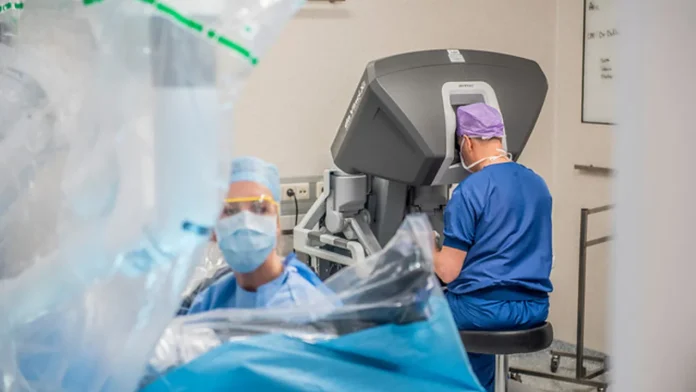Operating with the help of artificial intelligence. It is still a bit of a vision of the future, but the Catharina Hospital in Eindhoven will investigate whether this will be possible in the near future. “This is realistic”.
The rise of artificial intelligence (AI) is unstoppable. This form of technology is already being put into practice in various areas, such as the use of the well-known ChatGPT. And the medical world is also looking at what AI can mean for healthcare.
Prostate cancer
Aron Bakker, a physician-researcher at the Catharina Hospital, has started a study to see if AI can help with urological procedures. This specifically concerns operations in which the prostate is removed. This procedure is the treatment protocol in cases of a tumour in the prostate. With such an operation, there is a real risk that the patient will become incontinent. The exact extent of this risk is unclear. The place where the surgeon cuts the urethra probably influences this.
Robot meets AI
Bakker wants to see whether AI can help with this. He wants to train AI on a large group of patients in the coming years so that artificial intelligence can provide good advice during the operation. “The urologist operates along with a robot. In the long term, we could install an AI plug-in in the robot. With the push of a button, the surgeon could see a probability calculation of incontinence. That should support the trade-off between leaving more urethra and operating closer to the tumour.”
Bakker believes that the application of AI can lead to significant gains in the long term. “How great would it be if the urologist could see that, for example, the chance of incontinence in a certain place is 30 percent and in another place the chance is 15 percent? That is certainly realistic.”
Research
Bakker’s research will take about two years. After that, it could take years before AI can really be used in the operating room. To do this, it must also be demonstrated whether using artificial intelligence is safe.
In the past two years, more than 14,000 men in the Netherlands were diagnosed with prostate cancer. Every year, 3,000 men die from it.
For Eindhoven News: Beena Arunraj
Source: Studio040 and Catharina hospital











